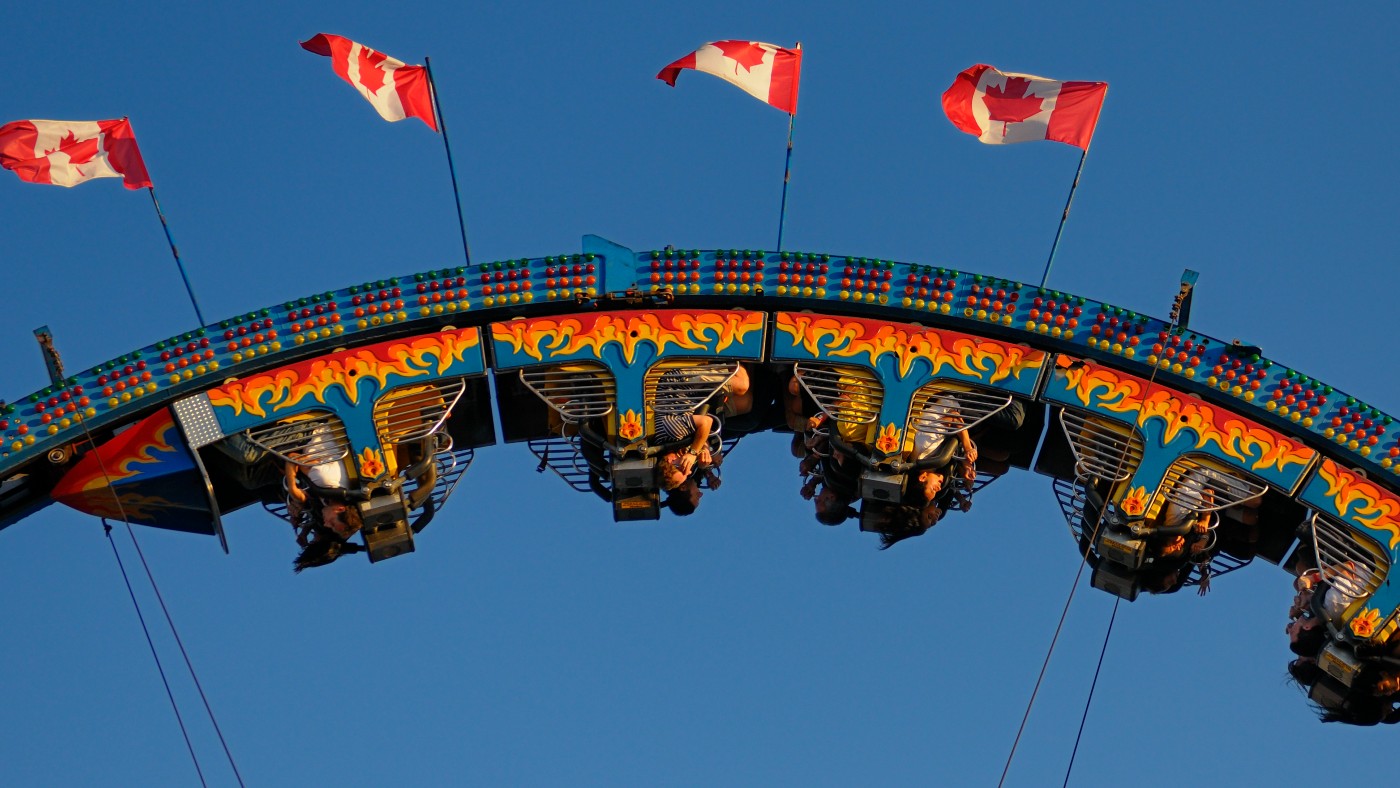How safe are the world’s rollercoasters?
Spate of rollercoaster breakdowns put amusement park safety in the spotlight

A free daily email with the biggest news stories of the day – and the best features from TheWeek.com
You are now subscribed
Your newsletter sign-up was successful
Questions are once again being asked about the safety of rollercoasters after eight people were left hanging upside down for more than two hours when the ride they were on broke down at a fair in Wisconsin.
The Fireball rollercoaster at the Forest County Festival in Crandon suffered a serious mechanical failure on Sunday at the top of a loop.
Emergency services took two hours to free riders from the cars. Nine people were treated on site by medics, and one was taken to hospital, authorities said.
The Week
Escape your echo chamber. Get the facts behind the news, plus analysis from multiple perspectives.

Sign up for The Week's Free Newsletters
From our morning news briefing to a weekly Good News Newsletter, get the best of The Week delivered directly to your inbox.
From our morning news briefing to a weekly Good News Newsletter, get the best of The Week delivered directly to your inbox.
Two other recent incidents have drawn attention to the question of rollercoaster safety: the first in North Carolina, where one was shut down after a crack in a support pillar was detected; and the second in Sweden, where one person was killed and nine others injured when a rollercoaster derailed.
So how safe are rollercoasters and other amusement park rides?
According to a 2015 article in The Guardian, there “isn’t a good, comprehensive answer” on the question of rollercoaster safety, because no one collects global statistics, “and it’s also not fair to compare a rickety coaster in a travelling fair to a state-of-the-art fixed coaster”.
This remains the case in 2023, but in the US at least, a trade association representing amusement parks called the International Association of Amusement Parks and Attractions (IAAPA) has been compiling national information on rollercoaster safety since 2001. It suggests that the chances of being killed on a rollercoaster are just one in 170 million, while the injury odds are approximately one in 15.5 million.
For perspective, 658 people died in the US in boating-related accidents in 2021, USA Today noted, while 42,915 people were killed across the country in car accidents.
A free daily email with the biggest news stories of the day – and the best features from TheWeek.com
However, experts note that IAAPA figures are simply estimates that are not verified by any federally approved organisations.
Between 1987 and 2000 the US federal Consumer Product Safety Commission (CPSC) collected data, but in a move that continues to fuel safety concerns, the CPSC stopped tracking data on deaths on amusement park rides in 2005.
Are rollercoasters regulated?
The answer to this question differs from country to country. Since 2000, “regulations have increased dramatically”, the BBC said in an article from 2012, “especially considering that some countries, such as the US, had no regulations at all until the 1960s”.
Today rollercoaster regulation remains markedly different around the world. Globally, the nonprofit group ASTM International sets voluntary safety standards for the industry regarding design, manufacturing, maintenance and operations. Many countries use ASTM standards as an overarching guide to their own policies.
In recent years Europe has been at the forefront of safety standards, according to an IAAPA fact sheet. It says that regulations in the EU “represent the ‘state of the art’ on amusement ride safety”.
The IAAPA calls these standards “the best practices developed over the last 13 years, representing another significant step toward global harmonization” of ride safety. As a result, they have begun being exported, and are currently “the amusement rides safety reference in more than 40 countries all over the world”.
Are we responsible for our own safety?
According to Jim Seay, the president and owner of Premier Rides, which designs and manufactures attractions for the likes of SeaWorld, Universal Studios and Six Flags: “There are very distinct guidelines on what you need to do to have a safe experience, and if people are purposely not following those guidelines, that puts not only the rider at risk, but it puts other riders at risk.”
That begins even before boarding a ride, Seay told USA Today. “I’m sure you’ve been on a ride where you go up and it says, ‘If you have the following conditions, you should not ride the ride,’” he said. “The rider needs to look at those lists of items and determine if the ride is appropriate for them.”
Are they safe?
The amusement industry is “caught in a bizarre marketing and image dilemma”, according to TripSavvy.
Parks are “positioning their marquee rollercoasters as extreme adventures that invoke terror and dread”, while also trying to “reassure park-goers that despite the wild names, hairy heights, insane speeds, and topsy-turvy acrobatics, thrill rides are actually quite safe and innocuous”, and that “the danger is all just an illusion”, said the travel site.
As a result, any accident at a park tends to generate a lot of publicity and attention.
Nevertheless, despite the publicity surrounding such accidents, the injury rates for children’s buggies, golf carts and folding lawn chairs are all higher than those of amusement park rides, said The Guardian.
TripSavvy concludes: “Theme parks and amusement parks in general, and rollercoasters and thrill rides in particular, are remarkably safe.”
Arion McNicoll is a freelance writer at The Week Digital and was previously the UK website’s editor. He has also held senior editorial roles at CNN, The Times and The Sunday Times. Along with his writing work, he co-hosts “Today in History with The Retrospectors”, Rethink Audio’s flagship daily podcast, and is a regular panellist (and occasional stand-in host) on “The Week Unwrapped”. He is also a judge for The Publisher Podcast Awards.